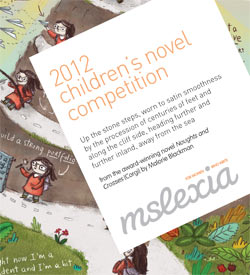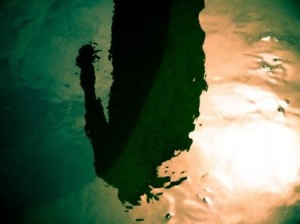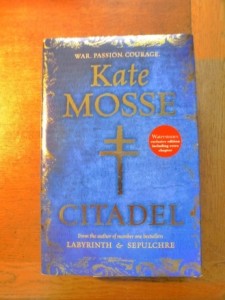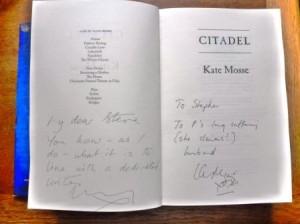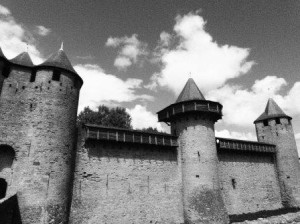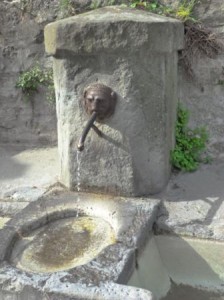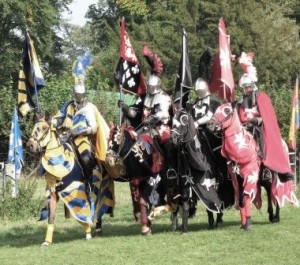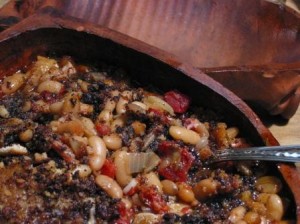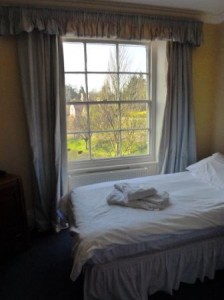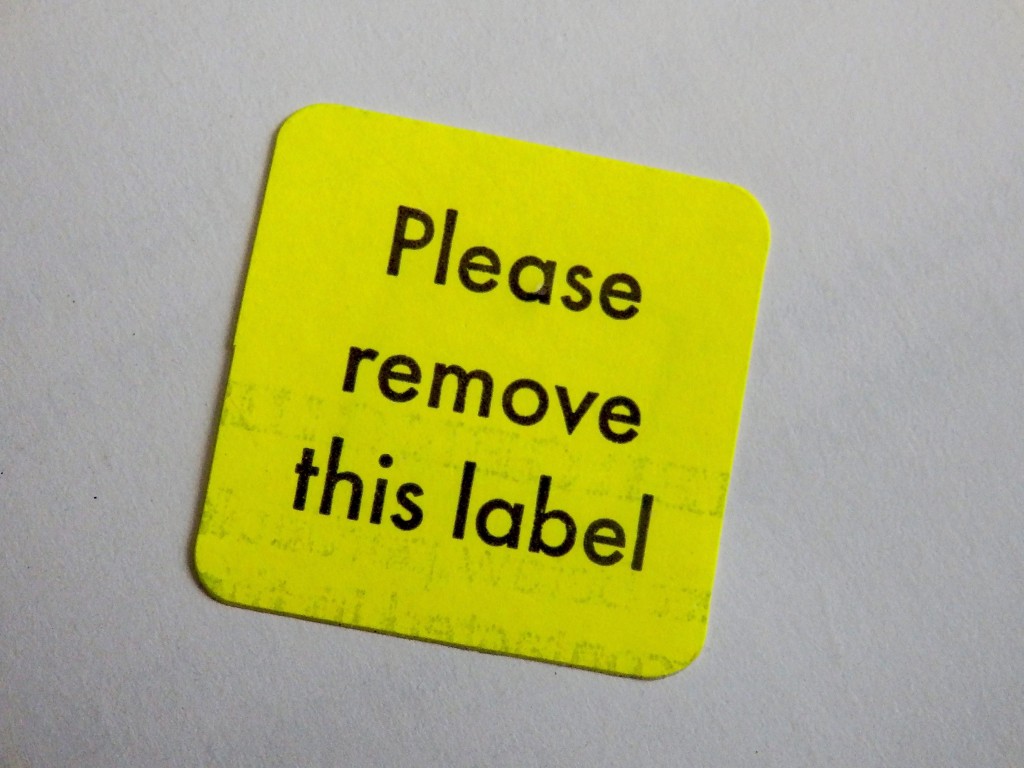 Labels are tricky things. Getting your name to fit on neatly and above all legibly. Positioning them so people do not have to squint at your bust. Peeling them off without a felted patch of jumper coming away too. Most of all, defining who and what you are… Continue reading
Labels are tricky things. Getting your name to fit on neatly and above all legibly. Positioning them so people do not have to squint at your bust. Peeling them off without a felted patch of jumper coming away too. Most of all, defining who and what you are… Continue reading
Tag Archives: Kate Mosse
The Next Big Thing
Thanks to Jo Wyton for tagging me!
What is the working title of your book?
The Selkies of Scoresby Nab.
Where did the idea come from for the book?
I’m a scuba diver and one of the most magical things I’ve ever done was diving with seals. This rekindled my love for the Selkie legends – although I’d never come across one from Yorkshire. So I decided to create one. I used the viewpoint of a boy whose mother was a seal – but who did not know.
What genre does your book fall under?
It’s a children’s historical fantasy. (It makes me feel ancient to call the Sixties history – but they are to ten-year-olds!)
Which actors would you choose to play your characters in a film version?
I think it would be have to be animated. I’d love actors with convincing Yorkshire accents to do the voice overs, mind you. Dame Judi Dench would do a fine Grandma and Sir Patrick Stewart, Granddad. But the central younger characters would be better off as complete unknowns.
What is a one-sentence synopsis of your book?
When troublesome Mattie Henshaw is sent to his grandparents’ house on Scoresby Nab, he doesn’t expect to discover a sea-going family he never knew he had, or to have to save them from slaughter.
Will your book be self-published or represented by an agency?
I don’t have an agent – yet. It has been long-listed for the Mslexia Children’s Novel Competition 2012, though.
How long did it take you to write the first draft of your manuscript?
I wrote the first draft as the main work in my MA in Creative Writing from West Dean College which I finished in one year ( 2011)
What other books would you compare this story to within your genre?
I think it’s unique. It has a distinct Northern voice – so you might be reminded of David Almond‘ s writing or ‘Kes’, and there are magical parts that might make you think of Katherine Langrish‘s work or Pat Walsh‘s.
Who inspired you to write this book?
My amazing taskmaster of an MA tutor, Greg Mosse ( yes, he is husband to Kate Mosse) and way back in history, my old English mistress, Miss Grey – who believed in me.
What else about your book might pique the reader’s interest?
If they have ever wanted to swim like a seal , or enjoyed the magic of the sea, then this is a book for them.
NOTE
I haven’t got anyone else to tag – would you like a go? Please?
Storming the Citadel
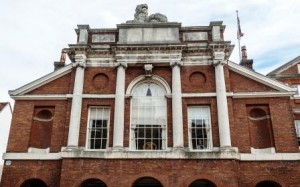 Last night I went to Chichester’s rather lovely Assembly Rooms to listen to Kate Mosse talk about her intriguing new novel, Citadel. I had downloaded and read the beginning ,quite legitimately, I might add, and thought it might well suit my husband. We had been to Carcassonne, and seen many of the streets in the Bastide which I knew were significant.
Last night I went to Chichester’s rather lovely Assembly Rooms to listen to Kate Mosse talk about her intriguing new novel, Citadel. I had downloaded and read the beginning ,quite legitimately, I might add, and thought it might well suit my husband. We had been to Carcassonne, and seen many of the streets in the Bastide which I knew were significant.
A delightful chap from the local Waterstones gave a preamble mentioning the many Kates – all facets of this inspiring and multi-talented woman. Her mother spoke up for Kate the Daughter – which caused a ripple of laughter. He also mentioned her previous titles but forgot ‘The Winter Ghosts’. A copy fell down shortly after. More amusement.
Through careful questioning by her husband, Greg, she took us through the stages taken to reach the finished work. I was pleased when she said ‘Sometimes the characters are not who you think they are’ and went onto explain how they emerge and assert their own traits. How many other writers have experienced this, I wonder?
It was fascinating, if humbling as a writer, to hear about her punishing work schedule. Up at three – coffee – write – jog – eat a little – write some more and so on… She deserves every success with effort like that. Especially when you consider that her beloved father died during the writing of this book.
The shadow of real life on every page of the draft .
Those who have read any of Kate’s previous works will know how much the spirit of place informs what she does (another notion I aspire to). She spoke of the ‘shadows that you still feel in Carcassonne’ and how the events of 1942 can decide which cafe a person frequents in 2012. There were some deeply moving anecdotes – and in a strange way, it was good to see that these still affected her, despite all the research. She has not lost the emotional connection with the Languedoc over her 23 years of work.
She clearly knows her stuff, yet self-effacingly prefaces detailed facts with ‘As I am sure many of you will know…’ I also cannot help but warm to a woman who admits that ‘novelists are shockingly nosey and inveterate liars’. She is a great smiler and does not take herself too seriously.
For me, the fact that she wanted to tell the hidden history of women and commemorate the ordinary people who couldn’t turn a blind eye, was appeal enough – but there had to be more before I would get it for my husband. It came with her enthusiasm for adventure stories: H. Rider Haggard and the like:
I like big juicy novels.
And when she said ‘Really, it’s girls with guns,’ and ‘It’s all about that action!’ I just knew it would fit the bill. As a Sussex man, he would also appreciate the value for money of 700 pages.
So I coughed up and had it signed by both Kate – and Greg. As one of Greg’s MA graduates, I was privileged to be invited to the after-party at Amelie & friends, which was a lovely mixed, inclusive event ( with rather nice olives too). Kate gave an emotional thank-you speech stood on a chair. I will not forget the deep affection expressed there for her husband and his support. I will always treasure this book as a symbol of the kindness I get from mine.
Souvenirs de Carcassonne
 I have just sorted out my photographs of Carcassonne. It has been quite revealing to see what I wanted to capture and what I recall best. For me, it has shown up recurrent obsessions that are reflected in my writing.
I have just sorted out my photographs of Carcassonne. It has been quite revealing to see what I wanted to capture and what I recall best. For me, it has shown up recurrent obsessions that are reflected in my writing.
As you know from last week’s post, I’ve been itching to go to Carcassonne for quite some while – and it isn’t all Kate Mosse’s fault. I have long had a hankering for the medieval: my A level Art project was Women’s Costume 1340-1485 ( which I believe I still have lurking somewhere complete with a picture of nobles listening to Chaucer) and I’m a bit of an Early Music fan too. I am hopelessly wrong but romantic – I don’t actually mind that Eugène Viollet-le-Duc ‘restored’ things in his own way. I love the world he conjured, even if it never quite existed.
I think it’s safe to assert that I won’t be writing contemporary social realism.
There I am walking round and my inner child is fighting off dragons, repelling besiegers and generally having an Errol Flynn sort of time. I can’t wait to get onto the battlements, peer through arrow slits and charge along the wooden galleries. (Did you know they were covered with animal hides to prevent fire?) I take many a panorama of La Cité in its setting and daydream about minstrels travelling along the banks of the Aude.
You might just guess from that I Iike action and adventure, and I aspire to big books with lots of scope. I am no Jane Austen.
I have lots of shots of gargoyles and grotesques. I love them. I love the craftsmen’s humour, their attention to detail and the edge of darkness it shows. I have also focused on decay, on the derelict and the hidden. There are glimpses of funeral wreaths inside crypts, flaking shutters and half-open doors. I am terminally nosey. I want to know what happens behind the façades. What are the secrets, where have the lost souls gone?
I’d suggest you don’t read my work if you want only sunny fun and bonhomie. Expect creepiness.
Even my water passion got a look in – it astonished me how delighted I was that I could hear the Aude purling over its weirs from our little room. I so enjoyed crossing the Pont Vieux and walking along the Canal du Midi too. Just the little waterspouts that worked made me want to clap my hands.
So there we have it: my books are likely to be set in an invented world that evokes our past, involve a fair bit of action, contain a good dose of weirdness and at least a splatter of the wet stuff.
I think that’s fair.
What about you – do your holiday snaps reflect your writing?
Playing away
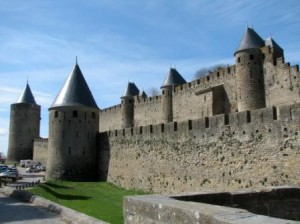 I am going to Carcassonne for the first time tomorrow. I have a soft spot for any walled city or castle and a deeply romantic yearning for the medieval. I think I have dragged my poor parents to every single Norman castle in Wales and one of my earliest memories is being told off for using the clothes prop as a lance. I can only have been five.
I am going to Carcassonne for the first time tomorrow. I have a soft spot for any walled city or castle and a deeply romantic yearning for the medieval. I think I have dragged my poor parents to every single Norman castle in Wales and one of my earliest memories is being told off for using the clothes prop as a lance. I can only have been five.
You can guess that I am really excited.
However this trip has absolutely nothing to do with my current work-in-progress The Wedding Ghost, nor any other writing I have on the back-burner. It certainly has no relevance to selkies. So what is the point?
First of all, it is a creative respite: in Julia Cameron’s terms, a chance to refill my well. I have been bashing the first draft of my ghost story and I’m pretty drained. Something unrelated yet inspiring gets the muse going again, I often find. Besides a little French cuisine and culture is all to the good.
Secondly, you never know, it might start something off. I do not think I would be treading on Kate Mosse‘s toes if I were to write my sort of fantasy adventure prompted by Carcassonne. A. she is far too generous a writer to mind, B. I don’t think I could manage such involved doorstops as she does and C. it would end utterly transformed by the time I’d finished with it if any of my other locations are anything to go by. Scoresby is not Scarborough, Selchester is not Chichester nor Selsey and The Isle of Wythering exists in some dark space on the South Coast entirely of its own.
Thirdly, it is a deliberate distraction. My MA novel provisionally titled The Seal People of Scoresby Nab is out there: somebody professional is reading it. I am understandably nervous yet I need to focus on what I am supposed to be doing now. I cannot emend my work by telekinesis so worrying about it is fruitless. Hence a trip away thanks to The Beloved Husband.
I am a very lucky wife and writer, I realise. I expect this will stoke me up for quite a while. I shall report back soon.
Which new place would you chose to set your muse singing?
The view from the Big House
An account of what I found useful as a writer for young readers at the 5th Chichester Writing Festival
Our first session focused on the experience of having work translated from Book to Film- a not too uncommon experience for some children’s writers. The key point was that adaptation has to embody the spirit of the book – not seek to replicate it slavishly. I found during the MA that retelling my story through drama helped me focus on what was key to my story. This approach might help with summarising for a synopsis, or honing your pitch.
Interestingly for me, some common themes cropped up in both the New Novelists and Poetry sessions. There was a good deal of debate about social media and other ways of reaching your readership. As was pointed out by Greg Mosse in the Writing for Children panel, that’s a normal thing for them. My take is that engaging with buyers and readers ( who are not necessarily the same people) is fruitful for both parties. Performance poetry develops more passion when people respond – and our readers engage more fully with reading when they relate to the author just the same as any reading group. This is a far more encouraging way of looking at interaction than as a cynical marketing exercise.
You might not think that the crime writer Mark Billingham would be that relevant to a writer for young people – but his account of learning to trust his readers, to allow them to create much of the story in their own heads stayed with me. Good advice for any writer, and for us, it avoids that awful pitfall of patronising our readers. More of that later.
Saturday found two sessions on Fiction and Non-Fiction. In both cases, the balance between making it up and rearranging the facts to create a better narrative was a matter of much discussion. Finally, it’s down to the writer’s integrity and judgement. That is no different in our world – though perhaps the debate over ‘bad’ language brings it more into focus.
Certainly what publishers and agents want outlined in the seventh session, is pretty much the same regardless of age written for – a typescript bursting with truth and a committed passionate author to go with it.
‘A good agent or publisher can help a writer to think big.’ Felicity Bryan
 Having paid for it (as a true Yorkshire woman) I went to the Military History discussion. I knew from previous conferences that the session you least relish can provide surprising insights – and I am always scared I might miss something. Here what struck me was that despite the apparent need for technical accuracy, it was the human responses that meant most. Truth to the experience was essential – and that the senses conveyed this best.
Having paid for it (as a true Yorkshire woman) I went to the Military History discussion. I knew from previous conferences that the session you least relish can provide surprising insights – and I am always scared I might miss something. Here what struck me was that despite the apparent need for technical accuracy, it was the human responses that meant most. Truth to the experience was essential – and that the senses conveyed this best.
Many writers for young people are Inspired by History. An amusing point from this panel for me was made by Jason Goodwin – he spoke of ‘smuggling information through the entertainment’. I think this is a good approach to avoid ‘infodumps’ in any genre.
Joanna Trollope spoke on Saturday evening to a packed Sussex Barn. She exhorted us to
trust to the power of the unconscious mind.
Her focus has always been on the human drama – and we all know if your reader doesn’t engage with the central character then nothing else matters. She was surprisingly hard on her younger self – saying she had lacked courage. I felt I must resolve to dig deeper.
Sunday’s after breakfast panel looked at New Publishing: I’d say writers for young people need to be aware of the changes and to utilise them as our readership will. Again it comes down to that interaction idea – and that there are new and developing ways now. (You might want to look at Alison Baverstock’s The Naked Author on this subject)
Last, but oh so definitely not least, we had Sally Kindberg, Bridget Strevens and David Whitley. One remarkable and emblematic feature for me was just how much more literally colourful we writers/illustrators for young people are. Francesca Simon picked up a similar yet deeper point: if you want creativity and passion, read children’s lit. She made it quite clear she felt that some adult authors were missing out by ignoring our wealth of approaches and subjects.
I so much admired how hard these panellists tried not to talk down to the people holding their books. They all wanted to provide the best possible, not some watered-down pallid version of adult writing or art.
Finally, the theme of all this for me was that there is no ‘Great Divide’ between writing for young people and adults. It’s a continuum in which many things apply across the whole range. Truth to the narrative, considered application of technique and engagement with your readership are the same regardless of the age catered for.
So I’d recommend this to any of my SCBWI colleagues – and anyone interested in any form of writing precisely because the focus is on writing as a craft. Professionalism is the same for all.
I would expect the Sixth Chichester Writing Festival to be in September 2013 – it will be worth going.
Great Expectations…
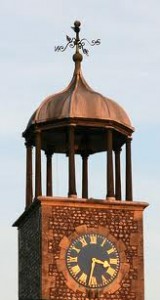 This morning I’ve been writing lists and laying out clothes in preparation for the 5th Chichester Writing Festival. I can feel a fizz of excitement inside and my inner eight year old is squealing and running around.
This morning I’ve been writing lists and laying out clothes in preparation for the 5th Chichester Writing Festival. I can feel a fizz of excitement inside and my inner eight year old is squealing and running around.
I get to meet proper writers and get taken seriously. The buzz has made my writing this week go really well – and I haven’t even crossed the marble entrance hall. What will I be like when I get there? I hope I don’t gabble too much. At least I’ve got some pennies to buy drinks – that always helps.
It will be good to meet up with West Dean College friends who are going. On the whole, I find the writing community very supportive – and perhaps children’s writers even more so. ( Name drop moment : Francesca Simon, David Whitley, Sally Kindberg & Bridget Strevens) We all need time with others who understand our obsession.
So there will be more here on Monday – just what silly things I said and what intelligent things I heard. Now to pack and catch the bus.
I wonder – what do you like about festivals?
The most democratic of spaces…
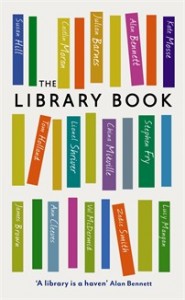 The Library Book is published today – and I have taken the words of one of its contributors to headline my post this week. Kate Mosse, a local Chichester resident, is a frequent and eloquent advocate on behalf of libraries. She speaks up for libraries everywhere, even though West Sussex is relatively healthy on that front.
The Library Book is published today – and I have taken the words of one of its contributors to headline my post this week. Kate Mosse, a local Chichester resident, is a frequent and eloquent advocate on behalf of libraries. She speaks up for libraries everywhere, even though West Sussex is relatively healthy on that front.
She is in good company.
Big names such as Stephen Fry, and tireless long-term campaigners like Alan Gibbons, are asking all of us to do something for our local libraries on Saturday 4th February : National Libraries Day.
My contribution will be a little unusual. Instead of taking books out, I shall bringing books in. ‘The Local Rag’ ( yes, Castle Printers‘ news round up really is called that) ran a story on the library wanting books. The Witterings Library was overwhelmed – which shows the level of local support. Since the original influx, they have asked for paperbacks under two years old and hardbacks under four. I will do what I can to provide.
You might like to check what your local library wants – or in some wonderful cases – is giving on Saturday. Show them you care.
Join a wonderfully diverse band of supporters : The Bookseller, The WI, and Unison.
Please sign this e-petition ( if you haven’t had chance yet ) by FEBRUARY 5TH
Buy the Library Book from Waterstones or Amazon or even better from Hive and delivered free to your local bookshop.
Take books in – or out – of your local library.
Do something so that people will have the chances you had in the future.
Summoning up the past
On Wednesday 7th December, I went to the opening of a Christmas Tree Festival at St John’s Chapel, Chichester in aid of Chestnut Tree House Children’s Hospice. The lights were switched on by Kate Mosse and the twinkling trees were a delight. But the thing that struck me most was the smell. I wasn’t the only one: a lady lost in thought murmured:
‘it takes me right back, that scent.’
Inspired by the event and with the help of a little mulled wine, I decorated our Christmas tree. Out came the wonky angel made by my middle son at playgroup, the toilet roll mini Christmas tree made by my youngest at nursery, and the dangly felt and bead caterpillar my eldest once sewed ( they are all in their twenties now). So many memories.
I put on Radio Four to keep me company – and caught one of their Weird Tales. It was, I thought, suitably spooky. It started me thinking about ghost stories and Christmas.There are fine literary antecedents: M. R. James, Charles Dickens, Edith Wharton – not to mention the oral tradition. What is the link?
At a simple level, the dark months make us hungry for brightness – and a light casts shadows. Could my Jewish or Hindu readers tell me if here is a similar need for the uncanny around the festivals of Hanukkah and Diwali? Humans love the contrast of light and shade – few things better than being safe indoors while the storm is out there, or the wraiths.
But there is more. Ritual brings us closer to those who have gone.
I cannot attach the one remaining little bird with its spun glass tail without thinking of my Nanna. I feel that pinch to the nose, that puckering of my forehead which show sentiment has got the better of me. I see her fingers pinching the tiny clip. This physical resonance is much deeper than creepy stories to out-scare the ghoulies and ghaisties and long leggedy beasties.
Some call up benign spirits – I think happily of L.M.Boston’s Children of Green Knowe – but others fetch more furtive shades. Not all memories should be recalled. Nonetheless, I think that’s why love ghost stories at Christmas – they close up the gap between the living and the dead.
Passing it on
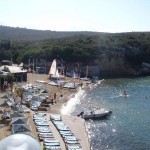 I’ve been away to Turkey on an activities holiday. It’s one way of counteracting that dreadful complaint ‘writer’s bottom’ and a good way of meeting new people. During introductions, it usually got round to what you do for a living. I decided to be bold and admit I write for children. The response was gratifying – it has to be said this was the middle classes at play – people were interested.
I’ve been away to Turkey on an activities holiday. It’s one way of counteracting that dreadful complaint ‘writer’s bottom’ and a good way of meeting new people. During introductions, it usually got round to what you do for a living. I decided to be bold and admit I write for children. The response was gratifying – it has to be said this was the middle classes at play – people were interested.
In particular, one family wanted me to chat to their son, Lewis, about his writing. As an ex-teacher, I couldn’t resist this appeal for help.
Now I have to admit this wasn’t entirely altruistic. I had taken my business cards and was quite happy to self-promote. As we all know, word-of-mouth is the best advertising. I had Kate Mosse’s voice in the back of my mind:
Never fail your constituency.
Not only that, but I have a viva voce to go before I complete my MA at West Dean and all practice is good. Explaining what I do and why clarifies things for me. As Frank Oppenheimer said:
The best way to learn is to teach.
So, not only did I enjoy reading Lewis’s high quality and instinctively dramatic work and the opportunity to hold forth, it was useful to me to examine what I had really learnt. Thus I am delighted to be asked by Greg Mosse to support the new MA students on a Tuesday: that’ll sharpen my ideas up.
It may be sentimental but the thought occurs to me that knowledge is like love – the more you share it about, the more you have.


